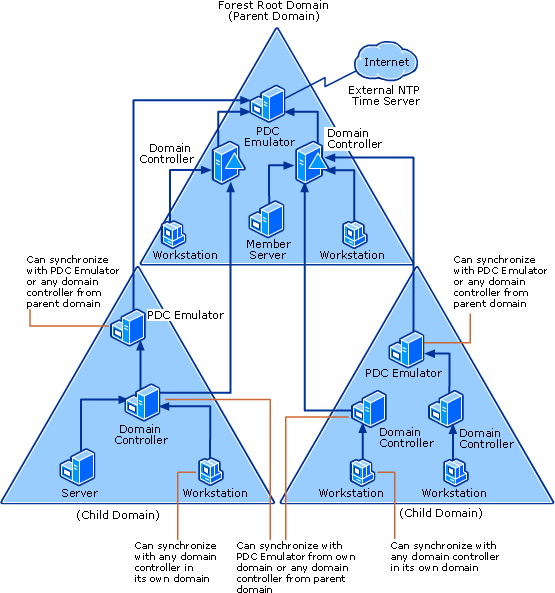Network Time Protocol (NTP)
Network Time Protocol
Network Time Protocol (NTP) is a protocol used to synchronize computer clock times in a network. It belongs to and is one of the oldest parts of the TCP/IP protocol suite. The term NTP applies to both the protocol and the client-server programs that run on computers.
NTP, which was developed by David Mills at the University of Delaware in 1981, is designed to be highly fault-tolerant and scalable.
How does NTP work?
The NTP client initiates a time-request exchange with the NTP server. As a result of this exchange, the client is able to calculate the link delay and its local offset, and adjust its local clock to match the clock at the server’s computer. As a rule, six exchanges over a period of about five to 10 minutes are required to initially set the clock.

Once synchronized, the client updates the clock about once every 10 minutes, usually requiring only a single message exchange. In addition to client-server synchronization. This transaction occurs via the User Datagram Protocol on port 123. NTP also supports broadcast synchronization of peer computer clocks.
Features of NTP
NTP servers, of which there are thousands around the world, have access to highly precise atomic clocks and GPS clocks. Specialized receivers are required to directly communicate with the NTP servers for these services. It is not practical or cost-effective to equip every computer with one of these receivers. Instead, computers designated as primary time servers are outfitted with the receivers, and they use protocols such as NTP to synchronize the clock times of networked computers.
NTP uses Coordinated Universal Time (UTC) to synchronize computer clock times with extreme precision, offering greater accuracy on smaller networks — down to a single millisecond in a local area network and within tens of milliseconds over the internet. NTP does not account for time zones, instead relying on the host to perform such computations.
Why is NTP important?
Accurate time across a network is important for many reasons; discrepancies of even fractions of a second can cause problems. For example, distributed procedures depend on coordinated times to ensure proper sequences are followed. Security mechanisms depend on consistent timekeeping across the network. File-system updates carried out by a number of computers also depend on synchronized clock times.
So, that’s all in this blog. I will meet you soon with some other stuff. Have a nice day !!!
Recommended content
RODC Installation Guide- Step by step guide to install read only domain controller
RODC Filtered Attribute Set
Installing and configuring a RODC in Windows Server-2012
How to find the GUID of Domain Controller
Group Policy Understanding Group Policy Preferences
Group Policy Verification Tool GPOTool Exe
Group Policy Health Check on Specific Domain Controller
What is Netlogon Folder in Active Directory
How to Create Custom Attributes in Active Directory
How Can I Check the Tombstone Lifetime of My Active Directory Forest
How to Determine a Computers AD Site From the Command Line
How to Check the Active Directory Database Integrity
How to Check the Active Directory Database Integrity
Disabling and Enabling the Outbound Replication
DFS Replication Service Stopped Replication
What is Strict Replication Consistency
The replication operation failed because of a schema mismatch between the servers involved
Troubleshooting ad replication error 8418 the replication operation failed because of a schema mismatch between the servers
How to export replication information in txt file
Repadmin Replsummary
Enabling the outbound replication
Guys please don’t forget to like and share the post. You can also share the feedback on below windows techno email id.
If you have any questions feel free to contact us on admin@windowstechno.com also follow us on facebook@windowstechno to get updates about new blog posts.
